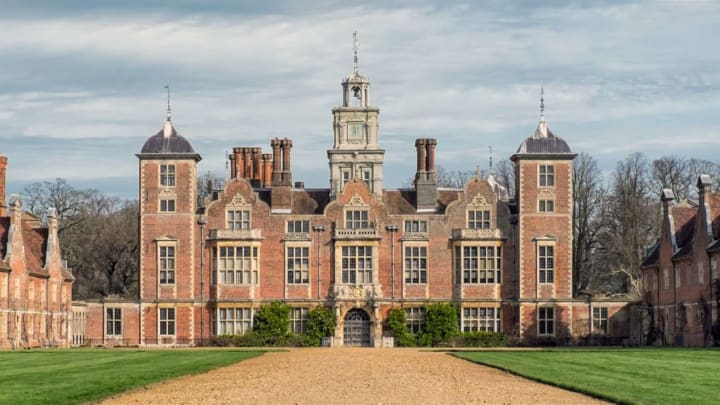In an inspired attempt to fight fire with fire, Britain’s National Trust is weaponizing one insect against another at the ancestral home of Anne Boleyn.
As CNN reports, Blickling Hall in Norfolk, England has been standing at least since the 11th century, when it was referenced in Britain’s oldest known public record, the Domesday Book. The estate was purchased by Anne Boleyn’s grandfather, Sir Geoffrey Boleyn, in 1452. And it’s widely believed that Anne herself was born there about half a century later.
Now, however, it’s home to common clothes moths that could wreak havoc on rugs, clothing, and other vulnerable artifacts—including a rare 18th-century canopy bed and a tapestry that Catherine the Great bestowed upon the household in the 1760s. The moths have had much freer rein throughout Blickling Hall in the wake of the coronavirus pandemic, and periodic pest counts have proved that the population has grown considerably over the past year.
“There's no doubt lockdown suited our resident bugs,” assistant national conservator Hilary Jarvis said in a press release. “The relative quiet, darkness, and absence of disruption from visitors and staff provided perfect conditions for larvae and adults alike from March onwards.”

To curb further spawning, the National Trust has enlisted the help of an unlikely ally: microscopic parasitoid wasps (Trichogramma evanescens). In 11 especially moth-ridden locations within the hall, staff members will plant dispensers that hold around 2400 wasps each, which will destroy moth eggs by laying their own eggs inside them. Though it seems like Blickling Hall will have simply swapped out one infestation for another, the wasps pose no threat to the upholstery or anything else—they’ll eventually die and “disappear inconspicuously into house dust,” if all goes according to plan. And to make things easier on all those friendly parasites, National Trust innovators also have a tactic to prevent moths from laying eggs in the first place. Using electrostatic technology, they’ll spray the area with female pheromones that’ll make it difficult for male moths to find and mate with actual female wasps.
The trial isn’t expected to wrap up until this fall, so the headless ghost of Anne Boleyn might be floating through clouds of wasp dust when she makes her annual death day visit to the manor in May.
[h/t CNN]
